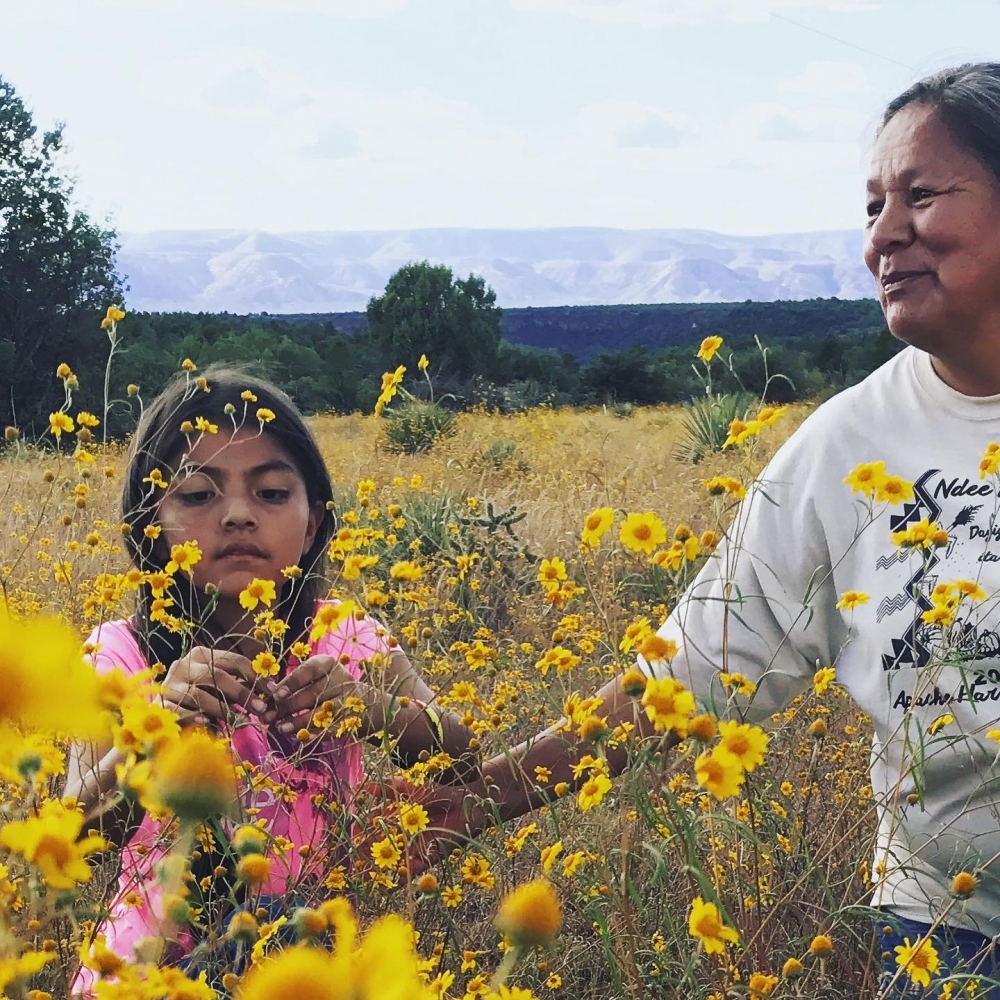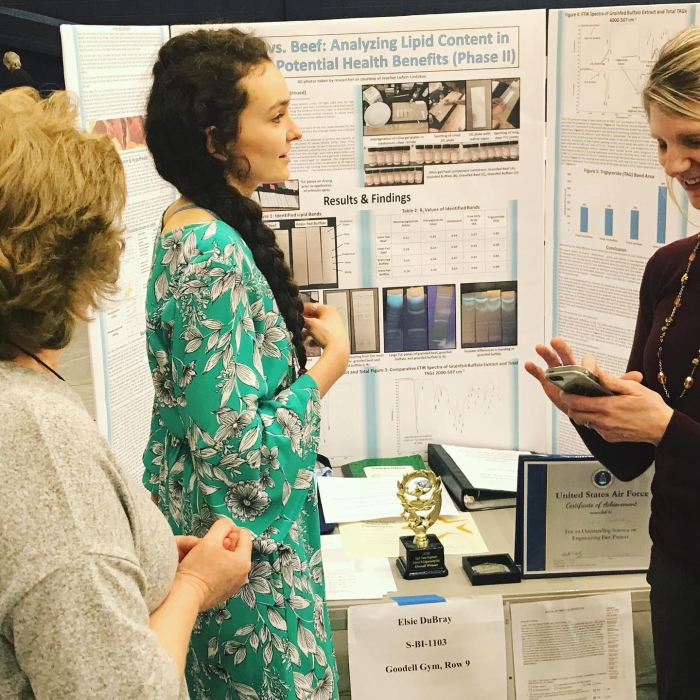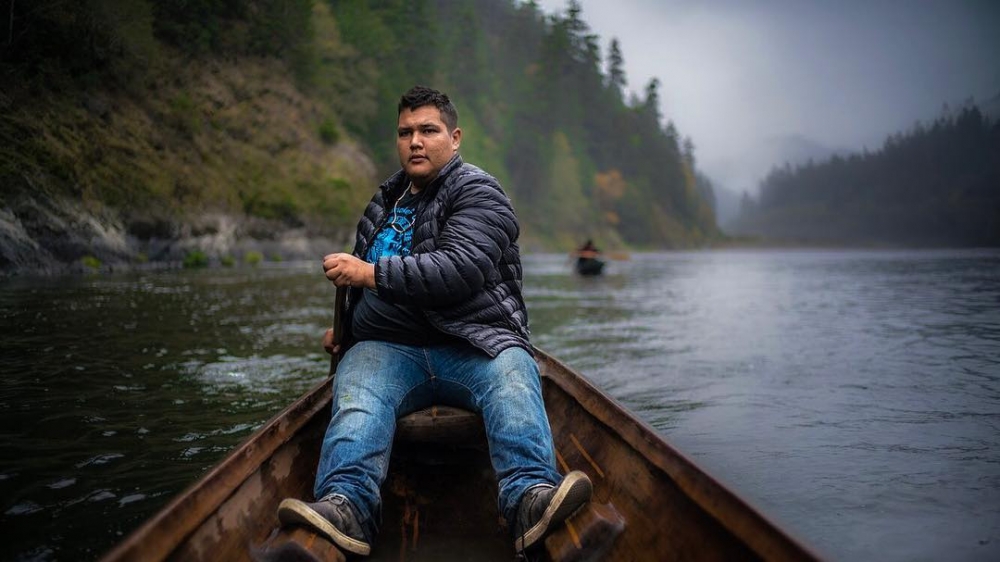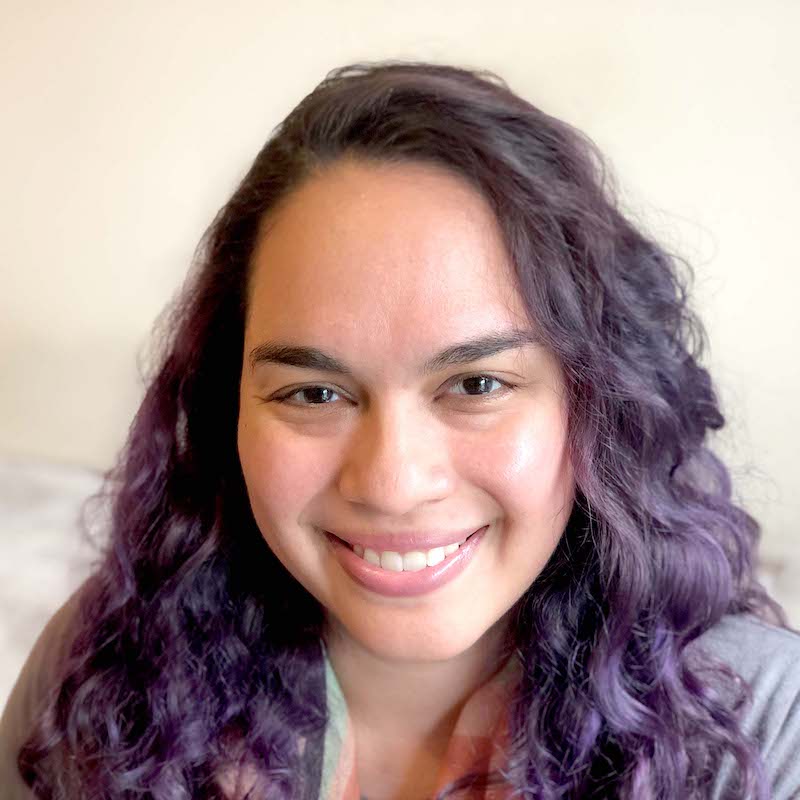
- Details
- By Monica Whitepigeon
For anyone interested in learning more about the importance of food sovereignty, the production of culturally-appropriate foods through ethically sustainable practices, the recently released film “Gather” is an ideal introduction.
The 74-minute documentary focuses on the diverse aspects and common obstacles tribal nations have had to overcome to reclaim their food sovereignty rights. Throughout the feature, the audience is introduced to three protagonists from a variety of Indigenous backgrounds, including chef and nutritional recovery clinic owner Nephi Craig (White Mountain Apache Nation), environmental activists Ancestral Guard from the Yurok Nation, and aspiring scientist Elsie Dubray (Cheyenne River Sioux Nation).
 Elsie Dubray discusses her research at the High Plains Regional Science Fair in Rapid City, SD. (Photo via Facebook)The film starts with a message of hope as master forager Twila Cassadore (San Carlos Apache) and her granddaughter gather ingredients from their ancestral lands in Arizona.
Elsie Dubray discusses her research at the High Plains Regional Science Fair in Rapid City, SD. (Photo via Facebook)The film starts with a message of hope as master forager Twila Cassadore (San Carlos Apache) and her granddaughter gather ingredients from their ancestral lands in Arizona.
“It’s just about reconnecting people to who they are, and it starts off small. It’s like planting that little seed,” said Cassadore in the film.
Produced by First Nations Film Development Institute, “Aquaman” star Jason Momoa and filmmaker Sterlin Harjo (Seminole, Muskogee), “Gather” showcases how the history of colonialism detrimentally affected Native food systems as well as its correlation to mental well-being. The film touches on the lack of accessibility to healthier and culturally-significant food options, such as the diminishment of Klamath River’s salmon population in Northern California and the near extinction of bison populations.
“If my research can do anything, I don’t want it to prove what’s already known. I just want it to help people get back to the way that it’s meant to be,” said Dubray about her research in the health and cultural benefits of grass-fed buffalo in South Dakota.
Film director Sanjay Rawal (Food Chains) examines the intrusiveness of colonialism and trauma associated with it while still offering hope by featuring Natives who are combating food deserts and long-term genocide.
In the documentary, Chef Craig spoke to an audience of young farmers to educate and discuss Indigenous food systems.
“Seventy percent of all foods consumed around the world today originated by Indigenous peoples of the Americas. And that’s some of the information that we want to instill in our own people,” said Craig.
Released this past summer, “Gather” is receiving high acclaim and was recently chosen as a critic’s pick by The New York Times. Common Sense Media, a nonprofit media reviewer, gave the film 4 out of 5 and praised it as “a thought-provoking documentary that offers a glimmer of hope for positive change, not only for Indigenous people, but also for a world seemingly on the brink of environmental catastrophe.”
 Ancestral Guard activist Samuel Gensaw navigating the Klamath River. (Photo via Facebook)
Ancestral Guard activist Samuel Gensaw navigating the Klamath River. (Photo via Facebook)
For featured activist, Samuel Gensaw (Yurok), passing along cultural knowledge and showing respect for wildlife will help in the recovery process for future generations.
“The industrial revolution is over. Now, if we want to survive, if we want to carry on life on Earth, we need to be a part of the restorative revolution,” Gensaw said.
The film’s website offers options to arrange screenings for virtual audiences along with post-screening Zoom discussions. Streaming options are available on multiple platforms such as iTunes, Amazon Prime and Vimeo-on-Demand.
More Stories Like This
Zuni Youth Enrichment Project Takes Top Emerging Artist Apprentices to Phoenix for Artistic Exploration and Cultural ImmersionFrom Dishwasher to Award-Winning Chef: Laguna Pueblo's Josh Aragon Serves Up Albuquerque's Best Green Chile Stew
Rob Reiner's Final Work as Producer Appears to Address MMIP Crisis
Vision Maker Media Honors MacDonald Siblings With 2025 Frank Blythe Award
First Tribally Owned Gallery in Tulsa Debuts ‘Mvskokvlke: Road of Strength’
Help us defend tribal sovereignty.
At Native News Online, our mission is rooted in telling the stories that strengthen sovereignty and uplift Indigenous voices — not just at year’s end, but every single day.
Because of your generosity last year, we were able to keep our reporters on the ground in tribal communities, at national gatherings and in the halls of Congress — covering the issues that matter most to Indian Country: sovereignty, culture, education, health and economic opportunity.
That support sustained us through a tough year in 2025. Now, as we look to the year ahead, we need your help right now to ensure warrior journalism remains strong — reporting that defends tribal sovereignty, amplifies Native truth, and holds power accountable.
 The stakes couldn't be higher. Your support keeps Native voices heard, Native stories told and Native sovereignty defended.
The stakes couldn't be higher. Your support keeps Native voices heard, Native stories told and Native sovereignty defended.
Stand with Warrior Journalism today.
Levi Rickert (Potawatomi), Editor & Publisher

